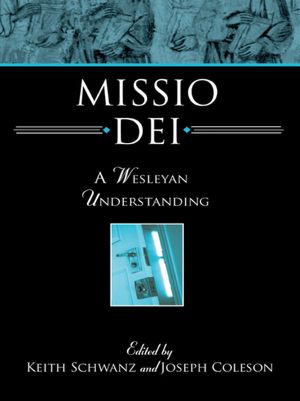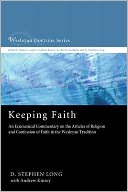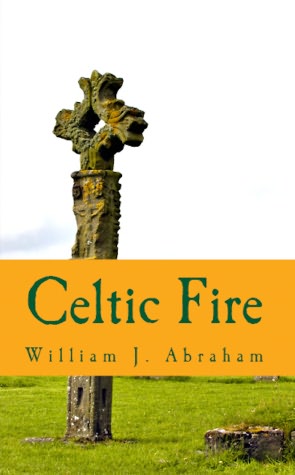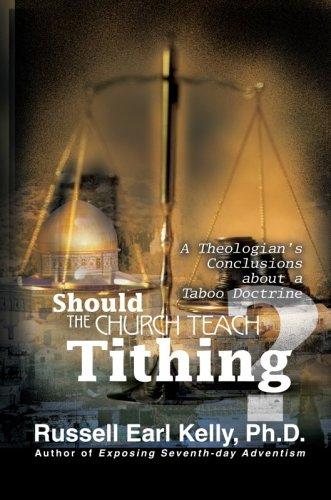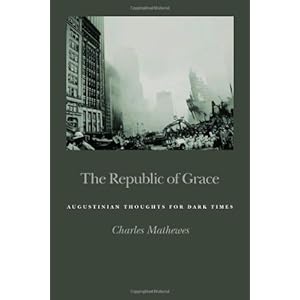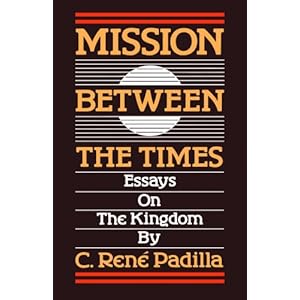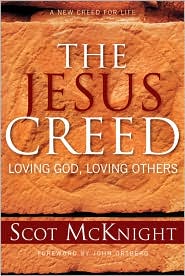
Should the church teach tithing? Given our emphasis on tithing in the Indiana Conference, I am sure we would want to promote the practice of tithing. However, as the recent flood of books on tithing (or not tithing) suggest, there is more to the story!
Below is a sermon I shared on generosity. I touch on this debate and show how the practice of generosity knows no limits.
The apostle Paul
was eager to see the Corinthians practice generosity.
The issue was simple: as a sign of unity Paul wanted the
predominately Gentile church in Corinth to share a gift – an offering – with
the predominately Jewish Church in Jerusalem.
There was a need to build a bridge
between Gentile and Jewish Christians, and there was a need to give a gift that
would help those who were struggling.
Paul takes several chapters to
instruct the Corinthians on the kinds of attitudes and principles they would
need to adopt to demonstrate the kind of generosity he believed they could
show.
Taking his cue from agriculture he
reminds them that “whoever sows sparingly will reap sparingly” and “whoever
sows generously will reap generously” (II Cor. 9:6).
He continues: “He [God] who supplies seed to the sower and
bread for food will supply and multiply your seed for sowing and increase the
harvest of your righteousness” (II Cor. 9:10).
Every person should give not out of
compulsion or reluctance but out of a cheerful, or loving, or willing heart (II
Cor. 9:7)./1/
As it is God’s character to give so we
are to give – generously! As it is God’s
character to love so we are to love – abundantly!
This is who God is and how God
works: at all times, in all things, in
all places, to all who confess and obey the gospel (II Cor. 9:8, II Cor. 9:13).
God provides the seed and makes
possible what we thought was impossible (II Cor. 9:10).
What we see as the problem of scarcity God sees as an opportunity to supply
in abundance (II Cor. 9: 12).
That’s the spiritual principle the
apostle Paul wants the Corinthians to understand: God is not a miser: rather, God is the Lord of life whose grace
overflows – all the time, in all places – always giving.
What’s the saying? “God is good, all the time; all the time, God
is good.”
There is in the very heart of God the
law of abundance whereby God always gives what we need! God’s grace is always sufficient (II
Cor. 12:9)!
So goes one of the first stewardship
campaigns in the Christian church!
Vital Church!
Now over the last few weeks we have
been sharing what a vital and caring congregation looks like, and we have been
noting how Christ invites us and challenges us to be a healthy and strong
church.
Last week Pastor Jenothy communicated
how as a church God can offer to us and through us healing and forgiveness,
making us whole and complete.
As the heart goes, she said, so goes
the life of the Christian, indeed, so goes the life of the church!
It’s a point Jesus makes in Matthew’s
Gospel that a good tree bears good fruit and a bad tree bears bad fruit (Mt.
7:18): the good heart [person] brings
out good things and the evil heart [person] brings out evil things (Mt.
12:33-36).
It’s a point Paul makes to the Galatians when he talks about the Spirit
bringing about an inward change that produces fruit like generosity, joy,
goodness, love (Gal. 5:22-23).
The very character of Christ takes
shape in us when we allow the Spirit to come to abide in us and with us!
It’s why we cannot force generosity! A church is generous not because it forces
giving but because it teaches and invites people to relate more fully to God,
allowing the Holy Spirit to convict./2/
A generous heart is really a heart
under conviction, responding to the need while trusting God to provide.
Without conviction, there is little
awareness of need, let alone God’s grace!
In fact, the two go hand-in-hand:
once convicted to give we trust God to supply to meet the need.
That’s the mark of health and
vitality: freely giving, always
trusting, without compulsion.
And it’s why generosity is always a
matter of the heart. There is no law
that can command a person to be generous (Gal. 5:23).
When the Holy Spirit wakes us up out
of our sinful self-centeredness, out of our lack of trust, out of our fear of
the difference God can make, generosity can become a reality!
Tithing
As some of you know I try to do a
great deal of reading, and lately, I have been following a debate about giving
and tithing.
In fact, some of the books I have read
over the last few weeks have the following titles: Why
Christians Should Not Tithe, Tithes:
The Exhortation of the Body of Christ, and Should the Church Teach Tithing?/3/
It is really an interesting debate about the
relationship between the Old Testament teaching on tithing and the New
Testament teachings on
generosity. What I would like to share
with you is what these authors are not saying: they are not saying we should not tithe or give
10% of our income to the Lord’s work’; rather, what they are saying is that as Christians
we, of all people, should not let the tithe limit
our giving to God!/4/ In other words, generosity does not have a 10% cap!
Now, I am sure someone is saying,
“Yes, but if everyone tithed, we would have more than we needed.” No argument here! I would love to see it!
But given that roughly 7% of Christians in this country practice tithing
I am going to assume that there is always more we all can give!/5/
I am going to I assume, with the apostle Paul, that there is no limit
to what we can give, that we cannot out-give God.
In fact, I am going to assume that a
generous person, convicted by the Spirit, will always try to give all he or she
can – to whom he or she can, in all the places he or she can, in all the ways
he or she can, at all the times he or she can, as long as he or she ever can!
I am going to assume that a generous
heart is a grateful heart, and that it does not get caught up in calculating
outcomes or making excuses or putting limits on God, but instead gets caught up in giving what is needed when
it is needed; that it gets caught up in sowing generously, abundantly.
To be sure, there is always confusion about
giving and tithing and about the motivations of giving, but the following clip,
I believe, can help us recognize how the law of God’s abundance gets twisted
beyond all recognition when giving and tithing get disconnected from the spirit
of generosity, when it loses sight of who God is and what God’s requires! Funny, but true! Watch!
The Skinny of Tithing
Boom, tithe! I think I recognized a few of those
characters!
The practice of giving generously is
not so much about giving a certain amount (though the tithe is a biblical
marker) as it is about giving according to what we have been
given (II Cor. 9:8). Jesus said, “To
whom much is given much is required” (Lk. 12:48).
Therefore, the question we need to ask is, “Are we truly being generous
with all that God has given us? In what
ways are we being a blessing to others?”
Extravagant Generosity
In the past, we have spoken about being a church that demonstrates “extravagant
generosity.”/6/ We have spoken about how
giving extravagantly is the
way to attain a wonderful, richer life.
I know as a pastor I have never known a giver who was not somehow
blessed or better off for it in every way. Have you?
Now, as God as my witness, I will not stand here and tell you that
giving to God will automatically and instantly bring you health and wealth. That’s a different gospel
(Gal. 1:6).
But I will stand here and tell you that God’s promises are true: that what we reap what we sow – and that those
who sow sparingly will reap sparingly (II Cor. 9:6).
And I will stand here and tell you that our God is a giving God and
that what God supplies is far greater than what we can ever ask or imagine (Eph.
3:20).
And I will stand here and tell you that God does love “cheerful givers” – “cheerful congregations” – those who
give freely and willingly to Christ’s work.
I will stand on those promises! And I will share with a grateful heart what I know: that our God is able to make all grace abound
in our lives and that because of this grace we can give in ways that we didn’t
think possible!
O Church of Christ: Thanks be to
God for this indescribable gift of grace (II Cor. 9:16).
Notes
1. See James D. Quiggle, Why Christians Should Not Tithe: A History of Tithing and Biblical
Paradigm for Christian Giving (Eugene, Oregon: Wipf & Stock Publishing, 2009), p. 87.
2. Ibid., p. 147.
3. See James D. Quiggle, Why Christians Should Not Tithe (Eugene, Oregon: Wipf & Stock
Publishing, 2009), B. Ann Nichols, Tithes:
The Exhortion of the Body of Christ (Mustang, OK: Tate Publishing &
Enterprises, 2006), and Russell Earl Kelly, Should
the Church Teach Tithing: A Theologian’s Conclusions about a Taboo Doctrine (Writers
Club Press: New York: 2007).
4. See James D. Quiggle, p. vii.
5. See the Barna Report: “New Study Shows Trends in
Tithing and Giving” (April 13, 2008). Go
to www.barna.org.
6. Robert Schnase, Five
Practices of Fruitful Congregations (Nashville: Abingdon Press, 2005).



